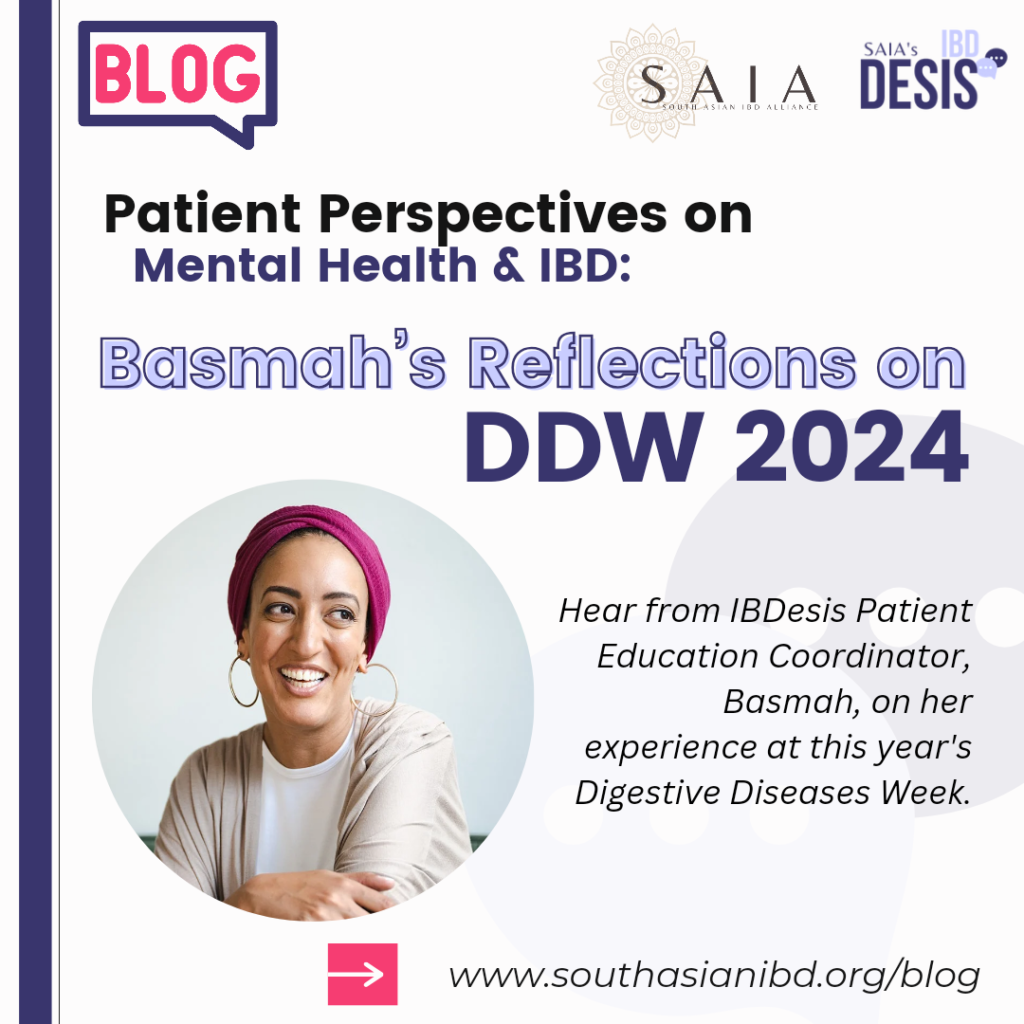
I had the privilege to attend Digestive Disease Week (DDW) in Washington, D.C. earlier this year. One of the most rewarding aspects of the conference was learning from presentations on current research on IBD and other GI conditions.
As someone who works in mental health and is processing my own, it is my passion to learn more about the correlation between mental health and IBD. I was excited and honored to connect with researchers with similar interests at DDW. One of the studies presented at the conference offered Behavioral Health Interventions (BHI), such as Cognitive Behavioral Therapy and mindfulness techniques, at no cost to individuals residing in an IBD medical home. Patients provided feedback regarding IBD symptoms in a questionnaire. Results demonstrated that interventions are correlated with:
- Improvement in urgency and frequency
- Less anxiety, stress, and depression
- Better sleep & pain control
Why does research like this matter to me as a patient advocate? Within the South West Asian and North African (SWANA) and South Asian communities, there is a lot of mistrust and lack of belief in mental health interventions. To maintain an outward appearance of “normalcy” and out of fear of what others may think of us, we are encouraged to remain silent on our mental health challenges and keep them “within the family’ instead of paying to talk to a stranger who will “judge” us and our cultures. These misconceptions often result in more suffering and isolation for IBD patients from these communities. This research empowers me to continue to break the silence around the stigma associated with mental health and help better support South Asian and SWANA IBD patients.
Studies, such as this one, emphasizing the importance of mental health interventions are also necessary to foster conversations about culturally informed and culturally cognizant mental & behavioral health. This is key in the delivery of multidisciplinary care to people living with IBD, to ensure we all receive the optimal care we deserve!
